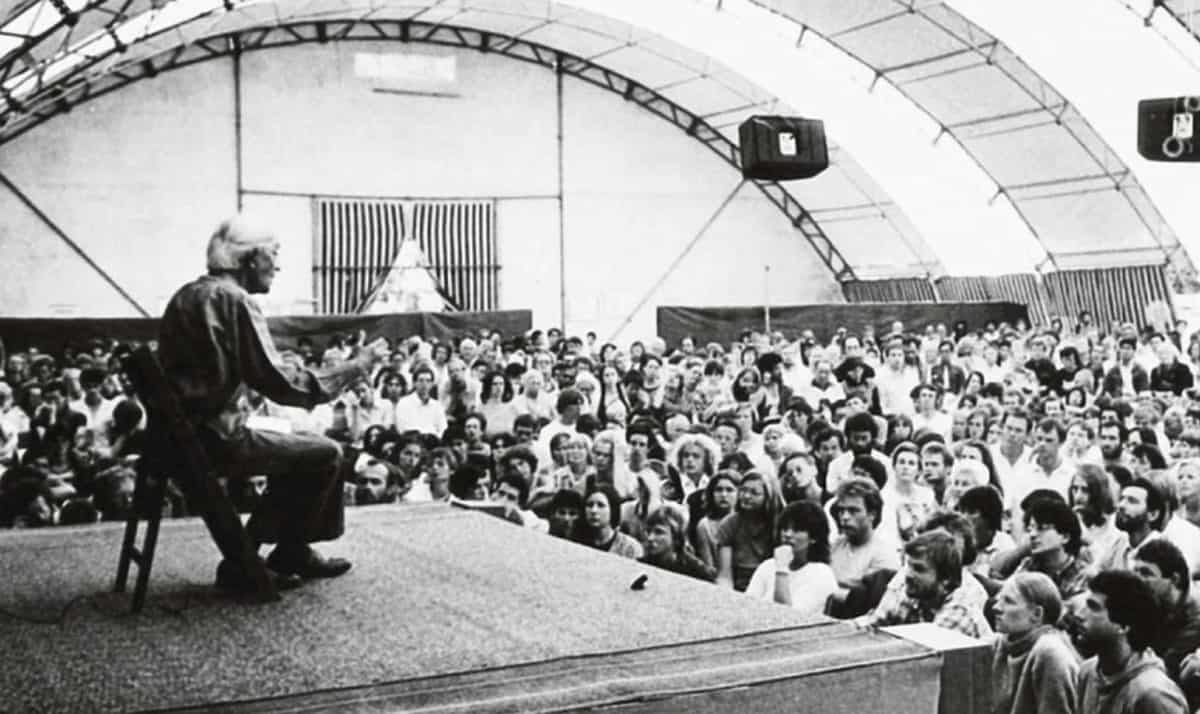Clients seek trainers because they are looking for a relationship. They want to be seen and heard and reflected back to, and calling on a person to help you sort your body out is a societal norm. (The slew of specialized services to select from is a testament to both the need and demand.) It is OK to pay for therapeutic help but not to buy your friends. We utilize this system and say we’re doing one thing — for our health and well-being — while actually exhibiting behaviors that are asking for something else.
Amidst this reckoning, a newer thought has emerged — what if the teachers themselves are also actually after friendship? Muse if you will, that Andreo and Jozef and Erwan and Gurdgieff and Krishnamurti, walled off from the world because of their own brilliance, and keeping people at a distance WITH that same brilliance, are simply looking for people to converse deeply with? Unable to find peers, they stand up in front or sit up on a stage. They talk, and the others listen.
The roles are clear and set. Clean, without blurs. They share their thoughts and findings with those that want to know things, not them. Sounds eerily familiar. And I’m just a lowly PE teacher.
Relationships take time and trust. They are far from permanent. Knowledge and skills stay with you as long as you use them, and teachers (the passionate ones in love with learning, anyway) are constantly using and expanding upon. Which is a safer bet? Which is a more controlled and sure experience?
I know, I know, experiences aren’t meant to be a curated event. But I know what and how a non-planned adventure goes. Too many gaps and pauses. Wishing I was elsewhere, being more productive. I have trained myself to equate space with escape and avoidance. Keep moving and looking ahead. There, not here, is where you want to be.
I wonder if the great ones (defined: those who changed the course of things and/or diverged with followers away from the status quo) also operate this way. I don’t know how many had/have partners, or what their partner’s existence must be. I can’t imagine it is easy or natural. Perhaps it becomes learned so it seems so. Still, I understand the natural separation that arises from the teacher-student relationship, and how it is easier to navigate many distant dots than one that hovers and wishes to keep approaching.
Is it a siphoning of celebrity — to be sought after and acknowledged that you have something that others don’t? How are the boundaries set? If they were removed, would the throngs rush in to touch you or would they just stare from where they always sat? Who is bold enough to step forward and speak first? Who has the bigger issue with rejection?
Which side of ‘Professional Pal’ do you sit?
Do our clients and students we set and schedule time with serve as our social outlet, and are we theirs? What do each reveal and notice and see? Can complete care be turned on and off by the hour? There is more being exchanged here than is being said and agreed upon. Relationships function by fulfilling a mutual need.
To help or teach you need willing bodies and minds. They come with questions that drive the interaction. When you move beyond ‘correctness’ and into ‘acceptance’, you recognize your reliance on them. This person (or group of people) is teaching you how to be more like them, and that familiarity adds to the types and kinds you can attract. They are offering you the ability to relate to other humans. Strange how they pay us to give us what we most want.


2 Responses
A small note off-point: “calling on a person to help you sort your body out is a societal norm.” Nope. That differs by age, gender, class, and ethic culture.
A fair point. Too general of a generalization, perhaps.